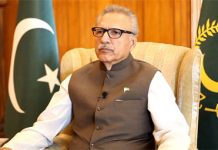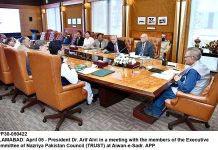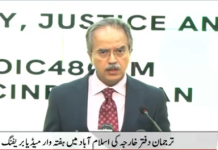Currently around 28 new initiatives are in place by Pakistan Agricultre Research Council (PARC) while it has approved 22 research projects to promote research and development activities in the agriculture sector of Pakistan, said Director General Engr. Shamim- ul-Sibtain Shah on Monday.
While talking to Daily Times he shared many landmark decisions taken by the department to boost agriculture. Like some other subsidiaries organizations of PARC, National Agriculture Research Council (NARC) is also its sub-center. Headed by him, Sibtain Shah said that the NARC consisted of 14 research institutes working on different sectors.
He said that there are some laboratories that are ISO certified which are the biggest achievements of the PARC.
He reaffirmed that the department is determined to seek growth of research based and multi grain food products with the high nutritional value in the country. “PARC is playing a key role in scaling up agricultural research and development through its agri-business,” he added.
While highlighting vision 2030 of the government, DG said that the PARC has contributed many proposals regarding agriculture in this vision that would be practiced.
He claimed that some fields including Plant Sciences, Animals Sciences, Agricultural Engineering and Natural Resources were the special focus of the department, as he said, there are many interlinks among these sectors so it would enhance the agriculture industry as a whole.
Under different projects, Sibtain Shah said, the wok is in progress such as production, multiplication, processing, certification, testing, quality management of approved varieties of oil seed crops, fodder and forages, cereals, vegetables, fruits, medicinal and aromatic plant species.
Furthermore, he claimed, the PARC opened Technology Display Centre at Commercial Market, Rawalpindi. He said such centers are also opened in some other cities as well.
“In order to provide healthy, hygienic and high nutritional food and in continuation of agri business activities the center was launched,” he explained.
The DG also shed light on some other stunning steps taken by the council. Few of them are included as olive cultivation bringing peace to FATA, solar energy to exploit horticulture potential of rain-fed and dry regions (Pothohar, Thal, KPK), desalination of saline water through solar energy, promotion of national sunflower and canola hybrid seed, promotion of national maize hybrid seed, high fodder production and preservation technologies, avocado cultivation in the sub-tropical zones, high quality banana production through tissue culture, high egg producing rural chicken livelihood improvement & poverty alleviation in FATA.











